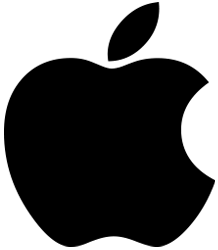
Apple is a technology company renowned for its innovative products such as iPhones, iPads, and Mac computers. They prioritize user experience, design, and privacy across different devices and services, aiming to empower individuals worldwide through cutting-edge technology solutions.
COMPANY LINKS
TAGS
- CEI |
- DEI |
- ESG |
- Open Secrets |
- Pride Sponsor
Updated 2 months ago
How woke is Apple?
Apple, one of the world’s most influential tech giants and the developer of iconic Apple products like the iPhone and Mac, has become a focal point in the cultural debate around woke corporate practices. As the company champions initiatives such as pronouns to contacts and privacy policy enhancements, its commitment to progressive values sparks both outrage and admiration among iPhone users. Is Apple genuinely driving change, or is it capitalizing on the woke movement to boost its brand? Let’s take an in-depth look at how Apple’s policies are reshaping its image and impacting its loyal user base.
Financial Contributions to Progressive Causes
In 2021, Apple announced an ambitious $430 billion in U.S. investments, which extend beyond infrastructure and technology to include addressing climate justice and systemic racism. A cornerstone of these efforts is the Racial Equity and Justice Initiative (REJI), which has already committed over $200 million to underserved communities.
Apple has also doubled its racial equity fund to $200 million, with the company stating, “Our REJI investments have catalyzed meaningful progress across the U.S., but there’s much more work to be done.” While supporters commend these contributions, critics argue Apple may be prioritizing progressive values over universal solutions, raising concerns among some iPhone users about whether the brand risks alienating its diverse audience base.
Diversity, Equity, and Inclusion (DEI) Policies
“Diversity and inclusion are embedded in Apple’s DNA,” the company declares on its diversity page. This commitment is evident through mentorship programs and leadership opportunities aimed at underrepresented groups. According to Apple World Today, “Apple’s programs aim to create gender-equal workplaces, offering mentorship and leadership opportunities for underrepresented groups.”
Despite this, critics argue that these policies may inadvertently sideline merit-based hiring, focusing instead on identity over qualifications. Some iPhone users question whether Apple’s push for DEI initiatives is overshadowing its ability to deliver flawless hardware like its Macs and iPads. Others joke about whether Apple’s hiring policies have led to some of the recent software blunders seen in iOS updates.
Unconscious Bias and Mandatory Training
Apple requires its employees to participate in unconscious bias training, which incorporates concepts like critical race theory and systemic inequities. “Apple employees undergo compliance training addressing unconscious bias and promoting a culture of inclusion,” the company notes on its compliance page.
While Apple positions this as a way to foster an inclusive workplace, critics question whether these efforts are fostering divisiveness instead. Some skeptics on Daily Mail have raised concerns, saying these sessions could alienate employees or focus too heavily on ideological narratives rather than productivity.
LGBTQ+ Advocacy and Inclusive Branding
Apple’s commitment to LGBTQ+ advocacy goes beyond marketing. The annual Pride Edition Apple Watch celebrates diversity and inclusivity, and partnerships like Encircle create safe spaces for LGBTQ+ youth. “Through partnerships like Encircle, Apple helps create safe spaces for LGBTQ+ youth and their families,” the company explains.
While allies applaud these initiatives, some iPhone users criticize them as performative. Critics question whether Apple’s focus on social causes is about genuine advocacy or leveraging cultural trends to maintain its reputation as a progressive brand.
Marketing and Branding
Apple’s marketing strategy skillfully merges innovation with progressive ideals. Iconic campaigns like “Think Different” and vibrant Pride Collection ads reflect the company’s social values. As a LinkedIn analysis highlights, “The company’s efforts to align its brand with socially progressive ideals resonate strongly with younger, socially aware audiences.”
Beyond advertising, Apple integrates its woke ethos into product design. Features in recent iOS updates, such as pronouns in contact information, aim to promote inclusivity. However, these updates have sparked mixed reactions, with critics joking about whether such additions prioritize politics over practicality.
In line with its broader goals, Apple also invests heavily in renewable energy and sustainable practices. The 2024 Environmental Progress Report highlights the company’s achievements in energy-efficient charging and sensor optimization. While some praise these moves as visionary, skeptics argue they might not address deeper systemic issues, labeling them as “greenwashing.”
Conclusion
As debates rage on about Apple’s focus, Apple stock remains a hot topic. Some investors fear that prioritizing woke policies over groundbreaking Apple products could increase financial risk. Meanwhile, others believe that aligning with progressive values ensures Apple’s long-term dominance over competitors like Microsoft and Samsung.
Notably, figures like Musk have criticized Apple’s direction, suggesting that the company’s progressive policies could soon lead to consumer backlash. However, some argue that Apple’s billions in cash and global influence shield it from any significant financial impact.
From billion-dollar contributions to racial equity, LGBTQ+ advocacy, and sustainability, Apple has undeniably embraced woke culture. Supporters view Apple as a leader in corporate activism, while critics argue its focus on progressive values overshadows its legacy of sensational innovation under Steve Jobs.
For iPhone users, the debate continues: Is Apple paving the way for meaningful change, or is it using woke policies as a tool to boost its bottom line? Only time will tell, but one thing is clear—Apple’s stance on progressive values will continue to spark discussion, delight some, and rage others.
Our rating is based

